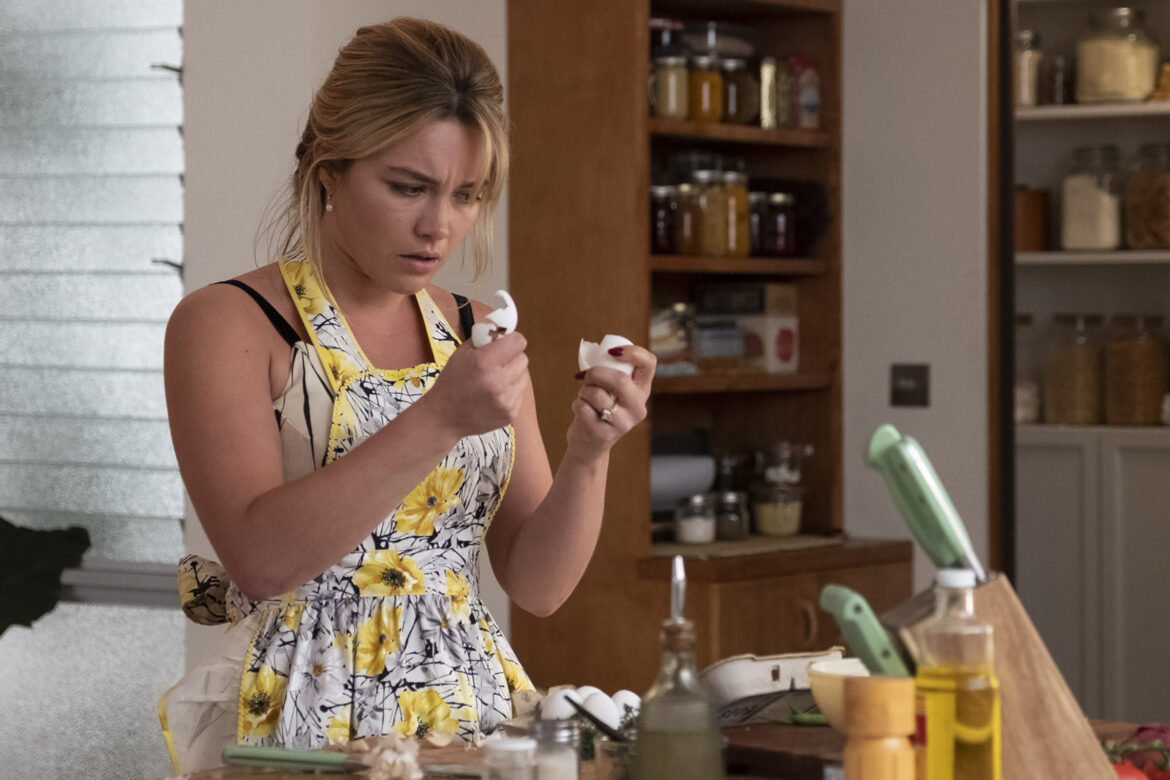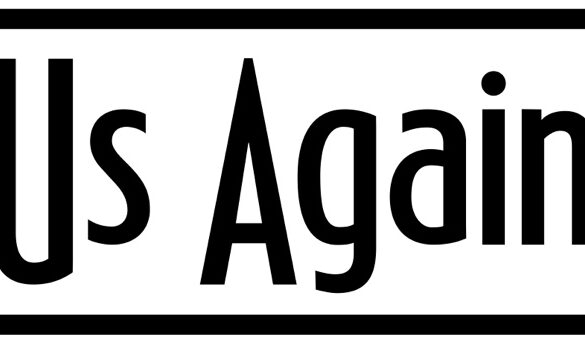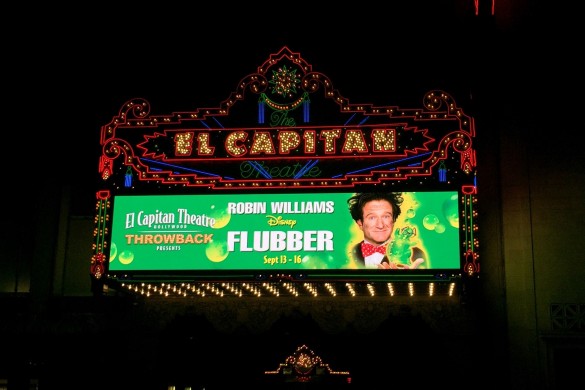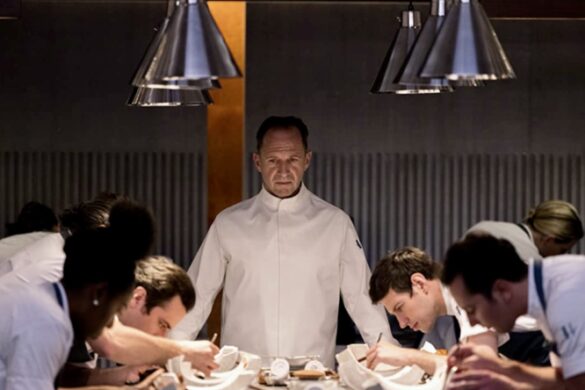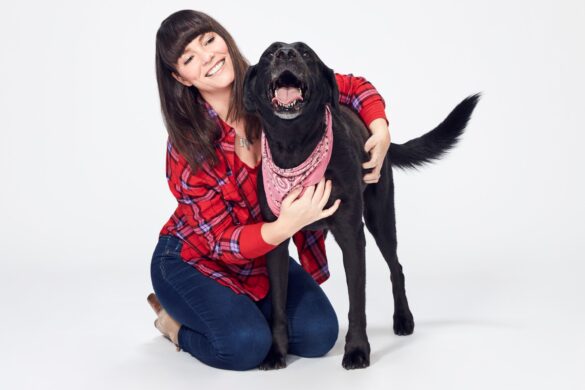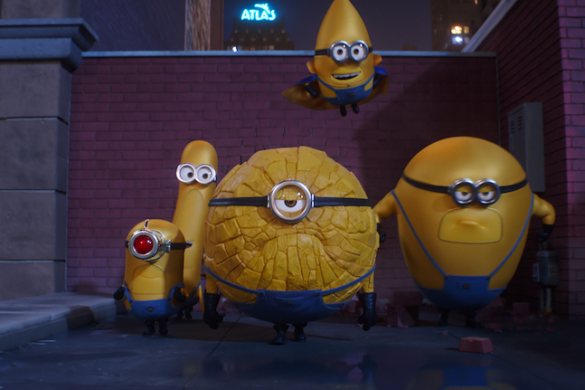In The Chords’ “Sh-Boom,” we hear how much life could be a dream if the person could take their lover to paradise and if they told them that they were the only one they will love. “Life could be a dream, sweetheart, hello, hello again. Sh-boom and hopin’ we’ll meet again, boom.” Though Olivia Wilde’s psychological thriller “Don’t Worry Darling” attempts to have its characters question the nature of life and love in stylish 1950s suburbia, it doesn’t give itself the time or space to provide us with satisfying answers. Not only that, but it also fails to follow up on the intriguing ideas posed by the underdeveloped characters that populate a created suburbia that’s too good to be real. The only upside to what we watch is Florence Pugh, who carries the entire weight of the film on her shoulders.
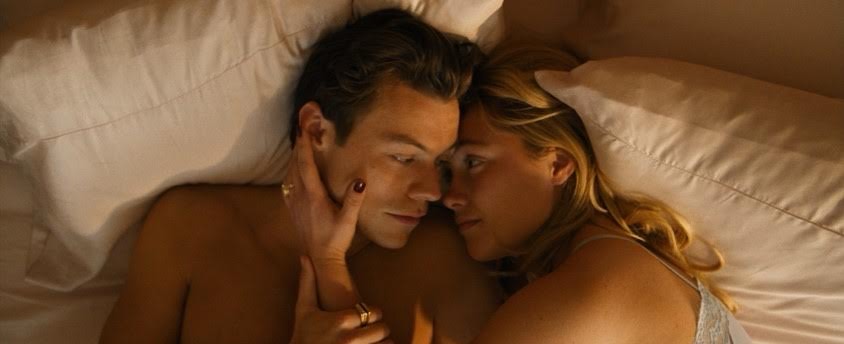
“Don’t Worry Darling” follow newlyweds Jack and Alice, who have just moved into the small sunny desert town of idyllic suburbia. It all feels safe. The neighbors are friendly. And everyone appears happy, with husbands leaving to work on the Victory Project and wives staying home to cook, clean, and take care of the kids. Sure enough, there is no reason to question the nature of this reality. So why even bother considering how life is perfect for everyone? Especially when the enigmatic Frank (Chris Pine) has created a paradise that only a few are allowed into.
Of course, not everything is as it seems. The unexpected rumblings and quakes force everyone to take cover or hold on to valuables. At the same, the pool lounging wives don’t question any of it and chalk it up to the boys “playing with their toys.” And yet, Frank keeps everyone within Victory calm with his radio hour chats, lavish dinner parties, and natural charms. While he claims that the work everyone is doing is changing the world, we don’t know how exactly they are doing that nor what the progress is. Instead, the wives and the audience are kept in the dark, and at the same time, we can assume something is amiss.
As Alice starts to wake up from her dream, we begin to see the world unravel. Wilde leaves some mind-bending twists and a few clues, along with horrifying visuals, to amplify the mystery and intrigue. And for the most part, it draws you in. Unfortunately, as “Don’t Worry Darling” takes us deeper into the rabbit hole, the film starts asking more questions and offers very few satisfying answers. Adding to those problems, some of the ideas aren’t fully fleshed out, and many don’t lead anywhere because the film forgets that they introduced them in the first place.
Sure, there is a stylish flair to its presentation, making it all the more fun to watch, but it becomes clear that they are throwing in concepts merely to add to the state of confusion Alice is feeling. And the film doesn’t seem to have any intention of resolving the mystery at play but rather doubles down on everything by further gaslighting everyone.
See, “Don’t Worry Darling” wants to keep everyone guessing by having Alice believe everything she sees or hears is in her head. In fact, the only one who shares such a sentiment is Margaret (Kiki Layne), a fellow neighbor who is feeling troubled. But all the other wives toe the line by staying at home. It’s all meant for us to feel uneasy about this paradise. Sure, everything looks clean and homey, but Even the trolleys have warnings that read what you see stays here, what you hear stays here, and what you do stays here are a means of keeping the wives submissive.
Sure enough, the subliminal imagery of synchronized ballerina dancers, drops of blood splattering, and Alice traveling into a version of the sunken place conveys her experience. But these visuals don’t amount to much because of their constant repetition. As the audience, we already know something is wrong with Victory. They don’t need these images constantly hammered into our eyes to understand that. And as we get closer to getting the answer to one question, the film throws a few more into the mix for no reason, and it manages to put in long-winded fillers of Harry Styles dancing or Alice trying to convince herself that she isn’t losing her mind. So it’s not hard to draw comparisons to Jordan Peele’s “Get Out,” which did a better job conveying the imagery with the story.
While “Don’t Worry Darling” has a story that it wants to tell, it just doesn’t know how to tell that story. It’s bold and ambitious in its storytelling as it attempts to visualize the gaslighting experience through Pugh’s stellar performance. The problem is it doesn’t do much else with what is given. For instance, the film wastes its eclectic supporting cast, who are given severely underdeveloped characters. Gemma Chan’s Wendy, Frank’s wife, has a startling and sinster presence at first when we see her lecture the wives on the importance of dancing as a unit – no doubt a subtle message about knowing your place and staying in your lane. But as she feels like she is being set up for something bigger, we don’t get to spend enough time with her to make that connection. And as a result, we are forced to accept what happens to her character as the film comes to its conclusion.
And Layne’s Margret has plenty of potential to push the envelope, given that she is the one who helps Alice wake up from the nightmare. But her role is simply reduced to a housewife giving blank stares and ominous warnings. Often times, Margret is silenced by her husband through doping drugs that attempt to keep her docile or other gossiping housewives who have shunned her because of her outburts.
Though “Don’t Worry Darling” is bold and ambitious in its storytelling, it suffers from being too smart for its own good. Sure, Wilde weaves in relevant social commentary that’s prevalent to the times that we live in now. And it’s all the more interesting given that it’s one of those rare psychological thrillers that visualizes the gaslighting experience. The problem that it has all these great ideas at its disposal, they just turn out to be half-baked.
6.5/10

